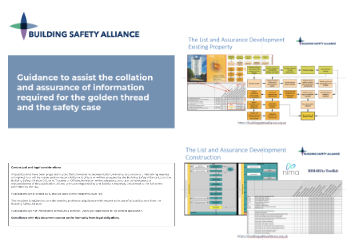Review of toilet provision
On 31 October 2020, Communities Secretary Robert Jenrick launched a review of toilet provision for women and men.
The government says evidence shows increasing numbers of publicly accessible toilets are being converted into ‘gender neutral’ facilities, causing problems for women and the elderly. The review will also consider signage, which it suggests should be clearer and use sex-specific language.
The government points out that women often face queues for toilets or don’t have access to appropriate facilities. Over recent years there has also been a trend towards ‘gender neutral’ toilets, which is against legislation where public authorities have a duty to provide safe spaces for women in lavatories in buildings.
The technical review, led by the Ministry of Housing, Communities and Local Government, will consider the ratio of female toilets versus the number for men, given the need for women to use cubicles, and will address the misconception that removing sex-specific toilets is a requirement of equality legislation. It will also take into account the need to ensure there is fair provision of accessible and unisex toilets for people with disabilities and families with children.
Robert Jenrick said: “I have launched a review to ….make sure that women can expect a sense of dignity, security and safety when using facilities. We want to maintain safeguards that protect women and the proper provision of separate toilets, which has long been a regulatory requirement, should be retained and improved.”
The review will gather views from interested parties as well as calling on the technical knowledge of industry experts. When it is concluded, as well as providing clearer guidance, the government will consider updating the building regulations or building standards to specify the number of toilets provided for each sex.
[edit] Related articles on Designing Buildings Wiki
- Accessibility in the built environment.
- Approved Document G.
- Approved Document H.
- Approved Document M.
- Bathroom definition.
- Changing places.
- Equality Act.
- Inclusive design.
- Lifetime Homes Design Guide (EP 100).
- Lifetime homes.
- People with disabilities.
- Installed level access shower.
- Sanitaryware.
- Sanitary accommodation.
- Water closet.
- Wet room.
Featured articles and news
International Electrician Day, 10 June 2025
Celebrating the role of electrical engineers from André-Marie Amperè, today and for the future.
New guide for clients launched at Houses of Parliament
'There has never been a more important time for clients to step up and ...ask the right questions'
The impact of recycled slate tiles
Innovation across the decades.
EPC changes for existing buildings
Changes and their context as the new RdSAP methodology comes into use from 15 June.
Skills England publishes Sector skills needs assessments
Priority areas relating to the built environment highlighted and described in brief.
BSRIA HVAC Market Watch - May 2025 Edition
Heat Pump Market Outlook: Policy, Performance & Refrigerant Trends for 2025–2028.
Committing to EDI in construction with CIOB
Built Environment professional bodies deepen commitment to EDI with two new signatories: CIAT and CICES.
Government Grenfell progress report at a glance
Line by line recomendation overview, with links to more details.
An engaging and lively review of his professional life.
Sustainable heating for listed buildings
A problem that needs to be approached intelligently.
50th Golden anniversary ECA Edmundson apprentice award
Deadline for entries has been extended to Friday 27 June, so don't miss out!
CIAT at the London Festival of Architecture
Designing for Everyone: Breaking Barriers in Inclusive Architecture.
Mixed reactions to apprenticeship and skills reform 2025
A 'welcome shift' for some and a 'backwards step' for others.
Licensing construction in the UK
As the latest report and proposal to licence builders reaches Parliament.
Building Safety Alliance golden thread guidance
Extensive excel checklist of information with guidance document freely accessible.
Fair Payment Code and other payment initiatives
For fair and late payments, need to work together to add value.
Pre-planning delivery programmes and delay penalties
Proposed for housebuilders in government reform: Speeding Up Build Out.
High street health: converting a building for healthcare uses
The benefits of health centres acting as new anchor sites in the high street.

























